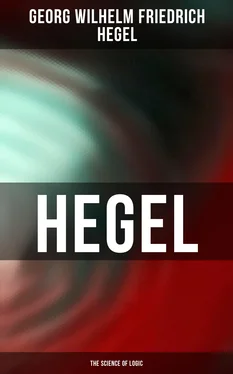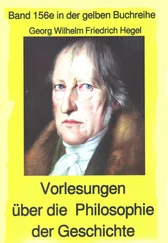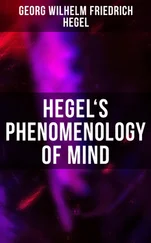17.] It may seem as if philosophy, in order to start on its course, had, like the rest of the sciences, to begin with a subjective presupposition. The sciences postulate their respective objects, such as space, number, or whatever it be; and it might be supposed that philosophy had also to postulate the existence of thought. But the two cases are not exactly parallel. It is by the free act of thought that it occupies a point of view, in which it is for its own self, and thus gives itself an object of its own production. Nor is this all. The very point of view, which originally is taken on its own evidence only, must in the course of the science be converted to a result,—the ultimate result in which philosophy returns into itself and reaches the point with which it began. In this manner philosophy exhibits the appearance of a circle which closes with itself, and has no beginning in the same way as the other sciences have. To speak of a beginning of philosophy has a meaning only in relation to a person who proposes to commence the study, and not in relation to the science as science. The same thing may be thus expressed. The notion of science—the notion therefore with which we start—which, for the very reason that it is initial, implies a separation between the thought which is our object, and the subject philosophising which is, as it were, external to the former, must be grasped and comprehended by the science itself. This is in short the one single aim, action, and goal of philosophy—to arrive at the notion of its notion, and thus secure its return and its satisfaction.
18.] As the whole science, and only the whole, can exhibit what the Idea or system of reason is, it is impossible to give in a preliminary way a general impression of a philosophy. Nor can a division of philosophy into its parts be intelligible, except in connexion with the system. A preliminary division, like the limited conception from which it comes, can only be an anticipation. Here however it is premised that the Idea turns out to be the thought which is completely identical with itself, and not identical simply in the abstract, but also in its action of setting itself over against itself, so as to gain a being of its own, and yet of being in full possession of itself while it is in this other. Thus philosophy is subdivided into three parts:
I. Logic, the science of the Idea in and for itself.
II. The Philosophy of Nature: the science of the Idea in its otherness.
III. The Philosophy of Mind: the science of the Idea come back to itself out of that otherness.
As observed in § 15, the differences between the several philosophical sciences are only aspects or specialisations of the one Idea or system of reason, which and which alone is alike exhibited in these different media. In Nature nothing else would have to be discerned, except the Idea: but the Idea has here divested itself of its proper being. In Mind, again, the Idea has asserted a being of its own, and is on the way to become absolute. Every such form in which the Idea is expressed, is at the same time a passing or fleeting stage: and hence each of these subdivisions has not only to know its contents as an object which has being for the time, but also in the same act to expound how these contents pass into their higher circle. To represent the relation between them as a division, therefore, leads to misconception; for it co-ordinates the several parts or sciences one beside another, as if they had no innate development, but were, like so many species, really and radically distinct.
1.The journal, too, edited by Thomson is called 'Annals of Philosophy; or, Magazine of Chemistry, Mineralogy, Mechanics, Natural History, Agriculture, and Arts.' We can easily guess from the title what sort of subjects are here to be understood under the term 'philosophy.' Among the advertisements of books just published, I lately found the following notice in an English newspaper: 'The Art of Preserving the Hair, on Philosophical Principles, neatly printed in post 8vo, price seven shillings.' By philosophical principles for the preservation of the hair are probably meant chemical or physiological principles.
2.In connexion with the general principles of Political Economy, the term 'philosophical' is frequently heard from the lips of English statesmen, even in their public speeches. In the House of Commons, on the 2nd Feb. 1825, Brougham, speaking oh the address in reply to the speech from the throne, talked of 'the statesman-like and philosophical principles of Free-trade,—for philosophical they undoubtedly are—upon the acceptance of which his majesty this day congratulated the House.' Nor is this language confined to members of the Opposition. At the shipowners' yearly dinner in the same month, under the chairmanship of the Premier Lord Liverpool, supported by Canning the Secretary of State, and Sir C. Long the Paymaster-General of the Army, Canning in reply to the toast which had been proposed said: 'A period has just begun, in which ministers have it in their power to apply to the administration of this country the sound maxims of a profound philosophy.' Differences there may be between English and German philosophy: still, considering that elsewhere the name of philosophy is used only as a nickname and insult, or as something odious, it is a matter of rejoicing to see it still honoured in the mouth of the English Government.
Chapter II.
Preliminary Notion
Table of Contents
19.] Logic is the science of the pure Idea; pure, that is, because the Idea is in the abstract medium of Thought.
This definition, and the others which occur in these introductory outlines, are derived from a survey of the whole system, to which accordingly they are subsequent. The same remark applies to all prefatory notions whatever about philosophy.
Logic might have been defined as the science of thought, and of its laws and characteristic forms. But thought, as thought, constitutes only the general medium, or qualifying circumstance, which renders the Idea distinctively logical. If we identify the Idea with thought, thought must not be taken in the sense of a method or form, but in the sense of the self-developing totality of its laws and peculiar terms. These laws are the work of thought itself, and not a fact which it finds and must submit to.
From different points of view, Logic is either the hardest or the easiest of the sciences, Logic is hard, because it has to deal not with perceptions, nor, like geometry, with abstract representations of the senses, but with pure abstractions; and because it demands a force and facility of withdrawing into pure thought, of keeping firm hold on it, and of moving in such an element. Logic is easy, because its facts are nothing but our own thought and its familiar forms or terms: and these are the acme of simplicity, the abc of everything else. They are also what we are best acquainted with: such as, 'Is' and 'Is not': quality and magnitude: being potential and being actual: one, many, and so on. But such an acquaintance only adds to the difficulties of the study; for while, on the one hand, we naturally think it is not worth our trouble to occupy ourselves any longer with things so familiar, on the other hand, the problem is to become acquainted with them in a new way, quite opposite to that in which we know them already.
The utility of Logic is a matter which concerns its bearings upon the student, and the training it may give for other purposes. This logical training consists in the exercise in thinking which the student has to go through (this science is the thinking of thinking): and in the fact that he stores his head with thoughts, in their native unalloyed character. It is true that Logic, being the absolute form of truth, and another name for the very truth itself, is something more than merely useful. Yet if what is noblest, most liberal and most independent is also most useful, Logic has some claim to the latter character. Its utility must then be estimated at another rate than exercise in thought for the sake of the exercise.
Читать дальше












